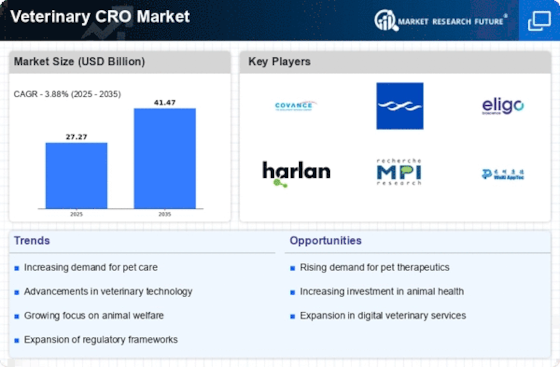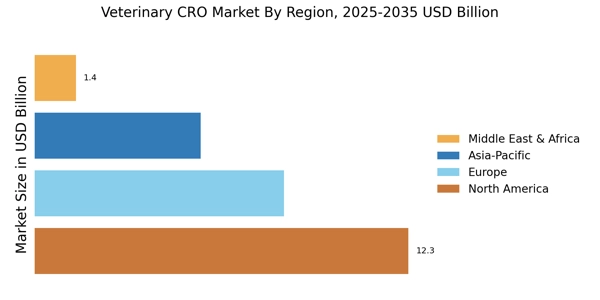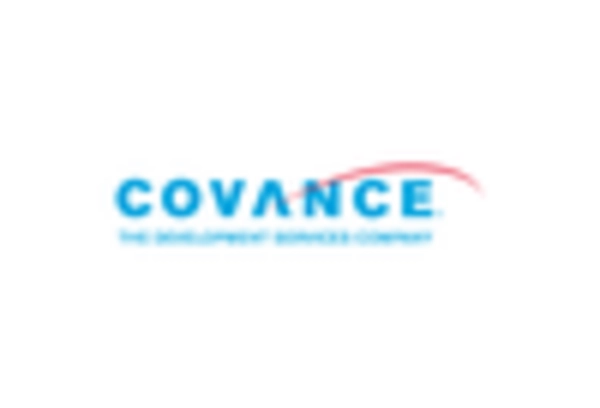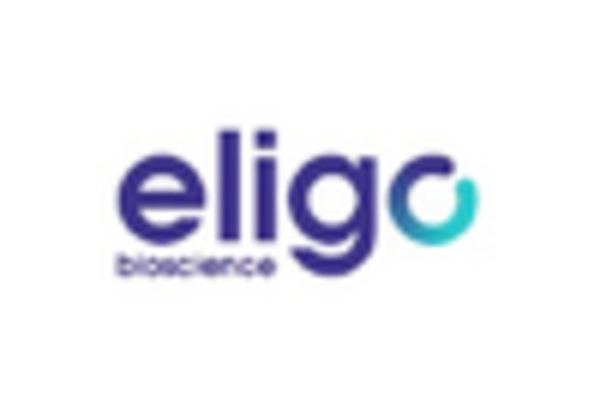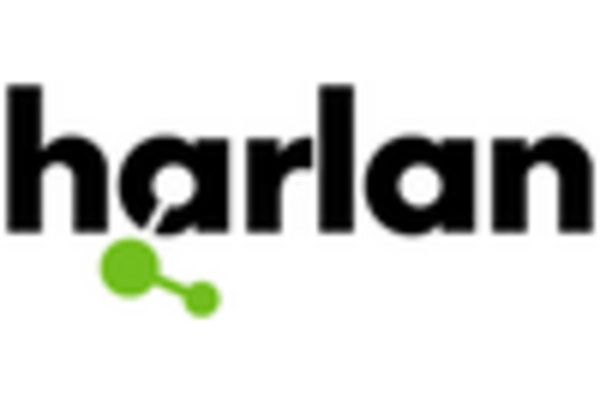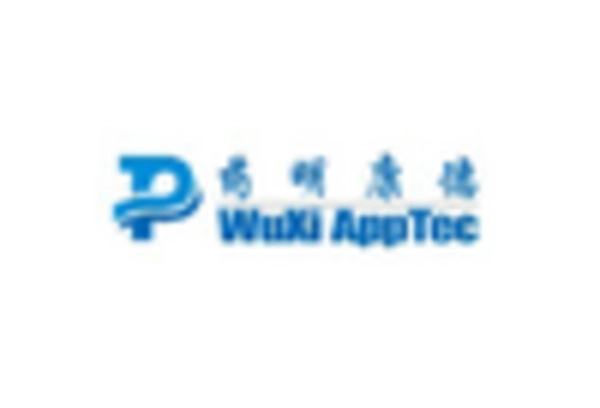Increasing Pet Ownership
The rise in pet ownership is a notable driver for the Veterinary CRO Market. As more households adopt pets, the demand for veterinary services and products escalates. According to recent statistics, pet ownership has surged, with approximately 67% of households owning a pet. This trend is likely to continue, leading to an increased need for veterinary research and development. Consequently, Veterinary CROs are positioned to play a crucial role in supporting the development of new treatments and medications tailored for various animal species. The growing awareness of pet health and wellness further propels this market, as owners seek advanced veterinary care, thereby enhancing the overall demand for Veterinary CRO Market services.
Regulatory Changes and Compliance
Regulatory changes and compliance requirements are increasingly shaping the Veterinary CRO Market. As governments and regulatory bodies implement stricter guidelines for veterinary products, the need for CROs to ensure compliance becomes paramount. This trend necessitates that Veterinary CROs invest in robust regulatory affairs capabilities to navigate the complex landscape of veterinary medicine. The emphasis on safety and efficacy in veterinary products is likely to drive demand for CRO services that specialize in regulatory submissions and clinical trials. Consequently, Veterinary CROs that can adeptly manage these regulatory challenges may gain a competitive edge, as they are better equipped to assist clients in bringing their products to market efficiently.
Focus on Animal Welfare and Ethics
The growing focus on animal welfare and ethics is a significant driver for the Veterinary CRO Market. As societal attitudes towards animal treatment evolve, there is an increasing demand for research that prioritizes humane practices. This shift influences the types of studies conducted and the methodologies employed by Veterinary CROs. Ethical considerations are becoming integral to veterinary research, prompting CROs to adopt practices that align with these values. The emphasis on humane endpoints and the reduction of animal testing is likely to shape future research protocols. As a result, Veterinary CROs that embrace ethical research practices may not only enhance their reputation but also attract clients who prioritize animal welfare in their product development.
Advancements in Veterinary Research
Technological advancements in veterinary research are significantly influencing the Veterinary CRO Market. Innovations such as genomics, proteomics, and bioinformatics are transforming how veterinary studies are conducted. These technologies enable more precise and efficient research methodologies, which are essential for developing new veterinary drugs and therapies. The market for veterinary pharmaceuticals is projected to reach substantial figures, indicating a robust growth trajectory. As Veterinary CROs adopt these advanced technologies, they enhance their capabilities to conduct complex studies, thereby attracting more clients seeking cutting-edge research solutions. This trend not only improves the quality of veterinary care but also fosters a competitive environment among CROs, driving further innovation.
Rising Demand for Animal Health Products
The increasing demand for animal health products is a pivotal driver for the Veterinary CRO Market. As awareness of animal health issues grows, there is a corresponding rise in the need for effective vaccines, medications, and diagnostic tools. The animal health market is expected to witness significant growth, with estimates suggesting it could reach billions in revenue. This surge in demand compels Veterinary CROs to expand their research capabilities and develop new products that meet the evolving needs of the market. Furthermore, the focus on preventive care and the treatment of chronic diseases in pets and livestock is likely to drive the demand for innovative solutions, positioning Veterinary CROs as key players in this expanding sector.


